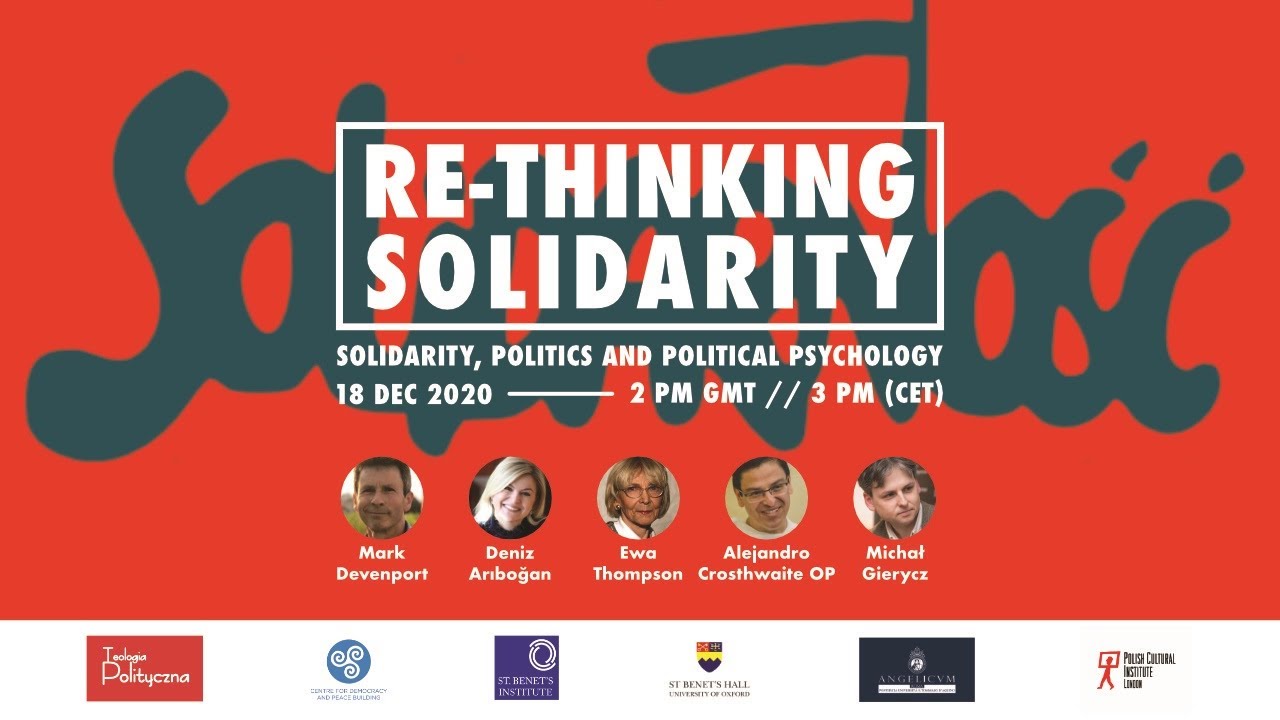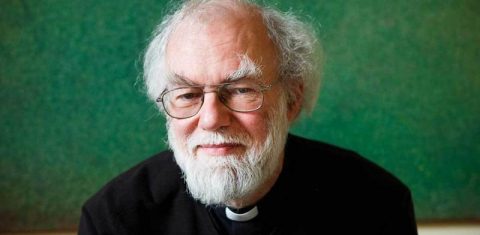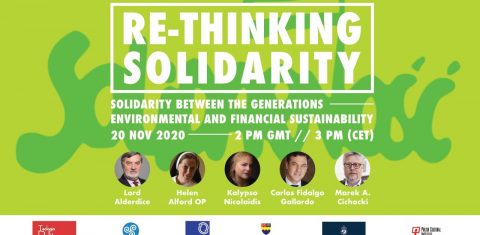In considering the source and sense for human solidarity our speakers drew their attention to the anniversary of Solidarity, by way of the encyclical Dives in Misericordia authored forty years ago by St. John Paul II. The thoughts presented in this publication provided the basis for a theological and philosophical understanding of the imperative and phenomenon that was Solidarity.
The first speaker was Fr. Alejandro Crosthwaite OP, who spoke about Solidarity from today’s perspective of Church teachings, bringing to mind the teachings of succeeding popes. He began by reminding us the meaning of John XXIII’s encyclical Mater et Magistra in the development of catholic social teachings, by the acceptation of what is known as ‘socialisation’, and later spoke about the last socially oriented encyclical of St. John Paul II Centesimus Annus, which pointed to naming this phenomenon ‘globalisation’. It is worth remembering here, that he spoke for Pope Francis in mentioning that globalisation likewise brings with it less fortunate aspects such as poverty, inequality and social unjustness, that result from both a lack of fraternity and solidarity. Solidarity is key in the current social teachings of the Church since it stems from the very social nature of us all. Therefore a social and political rule ought to be building societies in the spirit of responsibility for attaining our mutual wellbeing.
The next speaker to take the floor was Ewa Thompson, who considered the issue of why Solidarity being a movement that played such a significant role, has all but become forgotten by western intellectual and political elites. Her opinion shed light on the reason for this being the case, and what Solidarity truly was and presented. As it happens, it didn’t actually fit comfortably in western thought since aside from the economical grounds two other constituting factors were pertinent, those being the national roots and its sense of belonging, and also religion. The Solidarity activists had been fully aware that Poland is under foreign occupation and that her government answered only to Moscow. Moreover, it was their faith which gave them the discernment and understanding that what was going on around them was wrong, thereby guaranteeing them a sense of moral correctness over their foreign occupiers. Of these three factors, two were difficult to embrace by western intellectuals and politicians, where Solidarity has all but been forgotten, she emphasised.
Solidarity being a movement that played such a significant role, has all but become forgotten by western intellectual and political elites.
Denis Arıboğan took solidarity in the context of the contemporary pandemic as her focus for discussion. At the start of the 21st century it seemed that globalisation and international institutions or be it our mutual system of values that we hold, would lead us to all-round peace and solidarity. However the ensuing crises revealed that this did not turn out to be the case. The current pandemic is at times very hard for many and wholly changes ways of functioning that we have been accustomed to up until now, as well as the way we relate to one another. Countries during times of crisis prefer to isolate themselves, close their borders and rely on the rule of guaranteeing their own help, while the mechanisms of solidarity and cooperation at the international level stop working. It seems that the pandemic does not unite the world in solidarity but rather distances countries from each other by them being focused on their own self-interests.
The last voice of our discussion was taken by Michał Gierycz, who began by asserting that seeking features of solidarity in politics may actually seem paradoxical. From the standpoint of political theory, solidarity does not seem to fit with political categories since the main aim in politics is power. To fully complement this perspective we can look at the theory of Carl Schmitt which brings the aspect of we vs them to the significance of politics once we start to see others through the lens of enemies or friends. The Polish experience of Solidarity did not adhere to such definitions and the movement didn’t need an ideology since its roots reached far deeper into the domain of faith and morality, he explained. The mark that Solidarity left on us leads to looking at politics in two varying ways, that which comes from seeking higher positions of power, and that which stems from looking for the mutual good for all.
Summary: Konstancja Pikus
Translation: Tomasz Sosnowski




